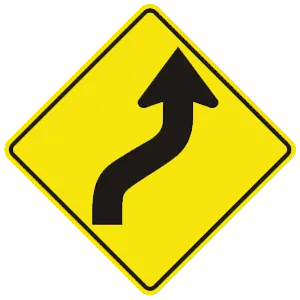Motorcycle Test | License NJ 2026 | FREE Online Practice! #9 Page 4 of 7
Take this FREE motorcycle test (license in NJ 2026) to check your knowledge of the road rules. To improve your results, download a motorcycle handbook online, study theory, and practice for free on our website. Still worried about how to get a motorcycle license in New Jersey in 2026? Check our website for more sample tests, train as much as possible, and boost your grades!
22 . When following a car at night, you can see the road more easily by:
When following a car at night, take advantage of the area illuminated by its headlights to help you see as far ahead as possible. Your high beam should not be used when following or meeting a car.
23 . Face shields and goggles:
Face shields and goggles, being made of plastic, will develop scratches and become brittle as they age. Replace them regularly to ensure maximum protection and comfort.
24 . When braking, you should use:
You should always use both brakes every time you slow or stop.
25 . This road sign means:

This sign indicates that the road ahead curves to the right and then to the left. You should slow down to be able to negotiate these curves safely.
26 . Motorists entering a highway from an entrance ramp to your right may not see your motorcycle. To help the entering drivers, you should:
Give plenty of room to vehicles merging onto a highway from an entrance ramp. Merge into a lane farther away from the entrance ramp, if necessary. If it is not possible to change lanes, adjust your speed to allow room for the vehicle to safely enter the highway.
27 . On a slippery surface, you should not:
To ride safely on a slippery surface, you should use both brakes when slowing or stopping, reduce your speed, and avoid making sudden moves. Be alert to oily areas, dirt, gravel, shaded areas, and bridges, as these surfaces are more likely to be slippery than others.
28 . When selecting a helmet, make sure it is all of the following, except:
You should select a helmet that meets U.S. Department of Transportation and state standards; fits snugly all the way around; and has no obvious defects, such as cracks, loose padding, or frayed straps.
See the exact questions that will be on the 2026 New Jersey DMV exam.
99.2% of people who use the cheat sheet pass the FIRST TIME
Jeneen was tired of paying $5/gallon. She got herself a scooter that required the motorcycle license. She studyed the motorcycle test cheat sheet and passed her test the next day!
Christopher tells us how he knew nothing prior to obtaining the motorcycle study guide, and he only got one question wrong because he clicked on the wrong answer by mistake.



